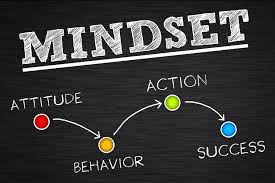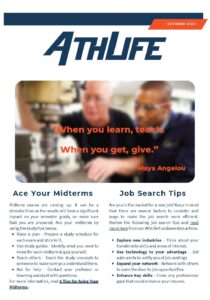
Lifelete Fundamentals
March 25, 2014
One of the most valuable life skills athletes at any level develop is teamwork. Teamwork is a characteristic that helps athletes in their post-athletic career to better work with others. Learning how to work well with others will ultimately help your career in many ways. Most job descriptions include some requirement or expectation that an employee must work well with others. Furthermore, being able to work well with others in the workplace can eventually lead to getting positive reviews, favorable recommendations for other jobs and possibly get noticed for leadership positions.
As an athlete you have had to work well with your teammates in order to reach common goals and be successful as a team. That principle can also be applied to any workplace. In the workplace, you will be faced with a variation of personalities, age groups, and individuals with varying professional goals. Understanding your workplace culture and implementing good habits that can help you work well in your workplace is crucial.
In his article “30 Simple Habits to Work Well With Others,” Joshua Steimle provides us with 30 habits that when applied to the workplace can help us become successful at working well with others. While many of the recommended habits are common sense Steimle explains “Many of these items might seem like small things, but getting just a few wrong or right can be the difference between; keeping a job and getting fired, getting a promotion or staying where you are, progressing at work or standing still, and developing rewarding relationships at work or feeling like a loser.”
Several of the habits Steimle lists, pertain to simple courtesy that your co-workers will appreciate and probably expect including: maintaining good personal hygiene, being on time to meetings, putting your phone away while talking to others and not interrupting others while they are talking. Additionally, several of the other habits listed focus around communication including:
- Prompt response to emails (if you have a hard time with responding to emails consider using an app such as Boomerang to help you)
- Double checking your emails (Grammarly is an excellent tool to help you with your email grammar)
- Displaying good body language while communicating
- Having honest but tactful communication
- Learning when to say “no” but also knowing when to say “yes”
Overall, just remember the things that made you a good teammate as an athlete and apply the same concept to the workplace.



